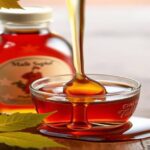Facts About Onion: Does the average American consume about 21 pounds of onions yearly? They are one of the most common crops grown today and are added to almost every dish we eat. And believe it or not, the onion has been around for thousands of years. Because of their circular layers, onions were considered a symbol of eternity. Greeks also believed onions to be a source of power. There are many fascinating facts surrounding this delicious vegetable.
So keep reading to learn more about the great onions. Some facts will surprise you.
1. Great Medicinal Benefits

Onions contain antioxidants and other compounds that lower inflammation and reduce triglyceride and cholesterol levels, resulting in a lower risk of heart disease. Their strong anti-inflammatory effects also reduce blood pressure and prevent blood clots. Additionally, research indicates that people who consumed the most onions had a 15 percent lower risk of colorectal cancer than those who consumed the least. These cancer-fighting properties are due to the powerful antioxidant and sulfur compounds. And they are abundant in fiber and prebiotics, which are essential for optimum gut health.
2. Why Do Onions Make us Cry?

When you cut an onion, a sulfur chemical called propyl sulfoxide escapes into the air. When it comes in contact with moisture, such as natural moisture around your eyes or water vapours in the air, it transforms into sulfuric acid. Since sulfuric acid has a strong smell and irritates your eyes, we can not help but cry. To avoid this emotional onion experience, there are numerous strategies. Start by chopping a little portion of the root end and discarding it. That allows the majority of the sulfuric compounds in the root to escape. Some cooks chill onions for 30 minutes before cooking them. That is beneficial because the sulfur compounds are less likely to escape into the air when cold.
3. A Cure For Baldness

Applying onion juice to the hair and scalp improves blood flow to the hair follicles and promotes growth. Also, extra sulfur from onion juice encourages robust and thick hair and reduces hair loss. The research found that participants who used onion juice to wash their hair saw more hair growth than those who did not. Additionally, it is a fantastic dandruff healer. It eliminates the bacteria that encourage dandruff growth.
4. Even Cavemen Ate Onions!
That’s right, long before farming was even invented, our prehistoric ancestors used to eat onions. They were a staple of ancient diets. Wild onions grew worldwide, and early humans munched on the delicious roots while hunting for meat. Its cultivation dates back to 5,000 years! It quickly becomes a popular vegetable as it is easy to grow, transport, and preserve. Onions are very adaptable and can survive in many different climates and soils.
5. Some Facts About Onion Is Sacred To The Egyptians
Facts About Onion Some Ancient Egyptians believed that onions had special magical powers that could appease the god of the afterlife. Its numerous circular layers were said to represent eternal life. It was a treasured object. Buried the dead with onions and onion flowers around their bodies, mummies have been discovered with onions adorning their pelvis, ears, eyes, chest, and feet. They believed that onions would ensure that the pharaoh’s food would be flavorful in his afterlife. In addition, they painted images of onions on the walls of pyramids and offered them as funeral offerings.
6. Good For Oral Health

The antibacterial and antimicrobial properties of onions help prevent diseases not only in the body but also in the mouth. Consuming raw onions strengthen teeth and eradicate dangerous oral bacteria. You cannot just chomp into a raw onion like an apple, so add it to salads with tasty dressings to ease the bite. But one downside is eating onions can cause bad breath. Therefore after eating onions, thoroughly rinse your mouth, especially if you plan to attend a social gathering.
7. Cure Ear Disorders
In addition to being delicious, Onions are a natural cure for earache. Because of its disinfectant and anti-inflammatory properties, drops of onion juice or onion wraps help with swelling and pressure in the ear and relieve the pain. One method is to warm up the onion, squeeze out some juice, and then pour a few drops into the infected ear. This treatment dates back to the 19th century. Alternatively, you can hold the half onion over the infected ear.
8. Perfect For Treating Mosquito Bites
The juices from the freshly sliced onion bulb lessen the sting and irritation of the bites. Additionally, onions have natural antibacterial and antifungal properties that can lower your risk of infection. Apply some onion juice from a freshly sliced piece to your mosquito bite. The bite will stop itching immediately, and if you apply it two or three times per day, the scar will disappear within a few days.
9. Some Facts About Onion Is Predicting The Weather
It is believed that the texture of an onion’s skin can predict how harsh the upcoming winter will be. Thick skin indicates a rough winter, but thin skin means milder conditions. So it is time to amaze everyone with your fortune-telling! However, ensure the onions you use are grown locally; otherwise, you could predict China’s upcoming winter!
10. Improve Sleep

Some Facts About Onion If eaten before bed, onions are one of the effective natural ingredients that can improve sleep quality. L-tryptophan, an amino acid that functions as a natural sedative, is abundant in onions. Additionally, it aids in stress reduction, which promotes restful Sleep. If you are not a fan of its taste, you could try the popular onion jar remedy. Slice your onion and place it in a jar to store it. Open this jar and inhale the vapors of the onions before going to bed.
11. Make Skin Glow
Onions are abundant in vitamins A, C, and E, all of which support healthy skin. They protect the skin from premature aging brought on by free radicals. The potent antibacterial properties also protect the skin from harmful bacteria. Studies show that onion extract inactivates the majority of bacteria. Antibacterial qualities are beneficial when you have active acne breakouts. So try using onion extract or look for creams that have onion extract as one of the ingredients.
12. Onions Support Brain Health
According to research, antioxidants in onions bind with the harmful toxins in the brain and remove them from the body. Also, the compounds quercetin and anthocyanin have improved focus and concentration. And the sulfur-containing substances in onions slow down the age-related memory decline. However, cooking may cause some of these memory-fighting properties to be lost. So, try your best to consume it raw.
13. Onions Not For Dogs

Facts About Onion Dogs should not consume onions. Onions are among the most dangerous human foods for our canine companions. It turns out that excessive onion consumption can destroy a dog’s red blood cells and can even cause hemolytic anemia, a severe medical condition. So it would help if you were highly cautious while cutting or storing them. Please put them in a hard-to-reach position in your kitchen. The leaves, juice, flesh, or powdered onion harm your pets.
14. Some Facts About onions Are Sliced Onions Poisonous? An Urban Myth!
So you sliced an onion but only used half of it and want to save it for later. Still, you’ve always heard that chopped onions are bacteria traps that may turn very dangerous after just one night, growing a toxic bacterium that might cause a stomach ailment or even food poisoning. Wrong! According to McGill University’s Office of Science & Society (motto: “Separating Science From Nonsense”), that is an urban myth that must debunk. Onions, according to McGill, “are not very susceptible to bacterial infection.”
15. Fighter of Osteoporosis Some Other Facts About onion
Onions can be a powerful weapon in women’s fight against osteoporosis after menopause. That is because onions kill osteoclasts, bone cells that resorb bone tissue and weaken bones.
Bottom Line
Who knew this common vegetable could have so many benefits and history? In terms of cooking, there are many ways to incorporate onions into your meals. You can roast, grill, pickle, caramelize, or serve raw onions in salads, sandwiches, dips, or as a garnish for tacos. But some cooking methods will enhance the nutritional value. According to research, baking, grilling, and frying onions release more antioxidants and flavonols, especially quercetin.






